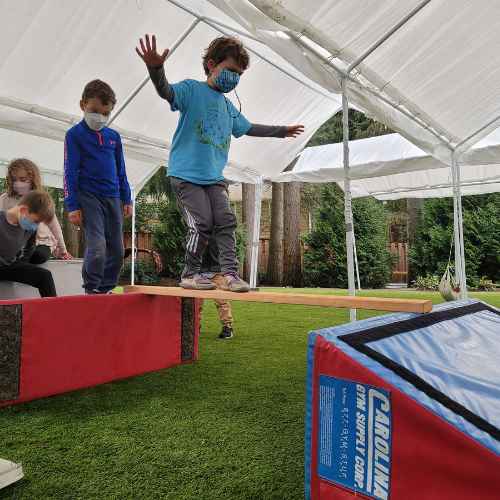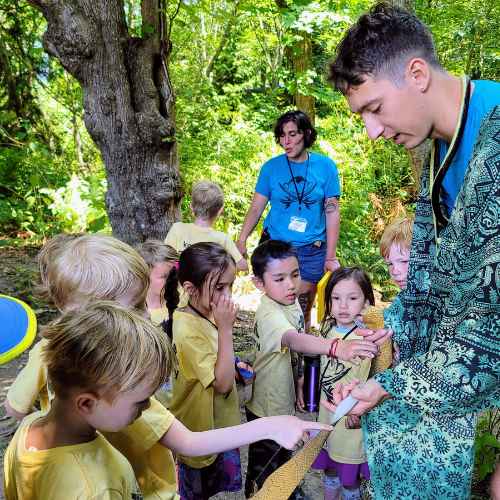
Co-curricular activities are an effective extension of student learning and development beyond the regular school curriculum. A study conducted on the Gurukulam Schools in India has shown that children who participate in co-curricular activities outperform their peers academically, and also have well-developed non-cognitive skills like social skills and self-confidence. These co-curricular activities often provide a space for children to improve in different aspects, which become essential as they grow older.
Since parents are the primary supporters of their children’s holistic development, it’s your role to help children get into pursuits beyond their usual education. So how do you get your kids to actively participate in different co-curricular activities? Here are five tips parents should consider:
1. Know their interests
One of the most important factors in motivating children is knowing what they like to do. If they are uninterested in the task or the topic, this activity would likely be more detrimental than beneficial. Parents can figure out their child’s interests by paying attention to their preferences at home. For instance, if they enjoy listening to music, they may want to be enrolled in a music class. Another approach is through exposure. A gradual introduction to new activities can help both of you learn what is interesting to your child and potentially expand their comfort zones.
2. Participate with them
Instead of just telling your child what they should do, it helps to get involved in their activities. Your participation is one way of reassuring your child that you support them in their endeavors. You can even guide them through the learning process and emphasize the value of hard work. Recently, the Japan Sports Agency proposed an initiative to involve members of the local community — such as private coaches and instructors — for the operation of school extracurricular clubs. After all, it does take a village to raise a child. One tip when giving your child advice in co-curricular activities: Focus more on the work rather than their output. This motivates them to face hurdles and appreciate challenges, rather than obsessing over accomplishments.
3. Tap into their competitive spirit
Through exposure, children become naturally competitive alongside their peers. Participating in co-curricular activities allows them to exercise this innate drive and many of these opportunities are presented in schools. For example, Bridge Academy Uganda encourages many of its students to join co-curricular activities, including ball games, chess, debate classes, and music groups. The students are given the freedom to travel to tournaments, festivals, and competitions, which they look forward to and engage in. These competitive ventures provide an avenue for children to meet others from different locales, allowing for unique experiences and memorable bonds to form. By reframing competition as something exciting or fun, your kids will be more likely to prepare well for their activities.
4. Teach them to lose gracefully
There may be times when children can get frustrated with failure and do not want to try the activities again. As we mentioned in our post called “Parents: Talk to Your Kids About their Strengths and Limitations!”, this may stem from false perceptions the kids have about their current capabilities. Instead of saying mean or untruthful words about others (e.g. “They must have cheated! That’s why you lost.”), empathize and acknowledge their disappointment. Directing your child to recognize their strengths and efforts allows for more positive progress in their work.
5. Respect their limits
As a parent, it’s normal to want your child to excel and push their capabilities. However, depending on your child’s interests and upbringing, they might not be ready for certain activities like contact sports. It’s important to be aware and sensitive to their abilities and limits. You may want to raise a prodigy, but you don’t want to start too early. The ideal age for children to join extracurricular activities is around two to three years old. It’s important to assess your child’s boundaries and take on age- appropriate activities, to ensure they can succeed and stay eager in the task. Co-curricular activities are an integral part of growing up and building necessary life skills in children. There are many ways you can encourage your child so they can take the steps to thrive in new environments. By understanding your child’s interests, limitations, and inherent drive, you can find ways to involve them in different disciplines and activities.
For more parenting tips and resources, check out our latest posts on Kong Academy.
GET Access to the ULTIMATE PLAY DATE PACKAGE (Value: $49) for FREE!


7-Day Crystal Shard Adventure
Unleash your child’s potential with our 7-day crystal shard movement adventure!




